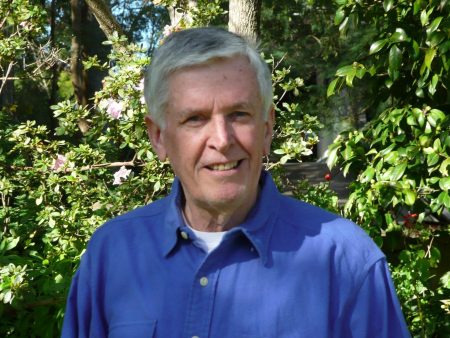JOHN TULLOH. The mirage of great expectations in Saudi Arabia.
October 14, 2018
Perhaps the most masterful PR campaign of international diplomacy this year was the visit to the US of Saudi Arabias Crown Prince Mohammed bin Salman commonly known as MBS. He was feted on a two-week coast-to-coast tour by politicians, big business, oil tycoons and the tech industry. President Trump fawned over him with a photographic display of the billions of dollars of American weaponry the Saudis were buying. Just peanuts to you, said Trump with some admiration. The media lined up like drooling supplicants. The main reason was that they all thought the new ruler of Saudi Arabia in all but name was a reformist who would steer the theocratic kingdom into the sunlit world of freedom and democracy.
But MBS blindsided them with his charm and earnest message. He has turned out to be just as much an authoritarian as his predecessors on the throne. He has given himself all the key portfolios, breaking the previous practice of consultative rule among the royal family, and is steadily turning Saudi Arabia into a country of one-prince rule.
Most of all, though, has been MBSs suppression of dissent and criticism. The lurid mystery of the whereabouts of one critic, the exiled journalist Jamal Khashoggi, last seen entering the Saudi consulate in Istanbul, is the latest example. It wasnt as if he were a revolutionary, observed Lydia Khalil, of the Lowy Institute, in an ABC interview. He was in fact a supporter of the House of Saud and the dynasty. He (only) advocated for changes around the margins, she noted. Even that may have been enough to seal his fate for such a sensitive person as MBS.
Later this month a female activist and four others are due to face a terrorism court for participating in peaceful protests and chanting anti-regime slogans. The Saudis reportedly are actually asking for the death penalty. The fact the woman is a Shia in a fervently Sunni country will not help her cause.
When Canada had the temerity earlier this year to ask politely for the release of two activists, one of whom has family in Toronto, MBSs wrath was extraordinary. He expelled the Canadian ambassador, froze trade and investment and ordered home Saudis receiving medical treatment in Canada. Riyadh called the criticism reprehensible interference in its current affairs.
One wonders what Yemens authorities would make of that. It is MBS himself who as defence minister has led the prosecution of the nastiest conflict in the world at present, the civil war in Yemen in which the innocent have suffered more than the combatants. Qatar, too. He didnt like its ties with his arch enemy, Iran, and tried unsuccessfully to blockade the emirate. Last year he tried to bring about a change in Lebanons leadership also because of Iran connections.
Certainly MBS got plaudits for allowing Saudi women to drive for the first time and yet locked up those who campaigned for it. But women still have to defer to a close male relative for permission if they want to marry, get a passport or open a bank account. He cracked down on corruption by rounding up a handful of wayward princelings along with some government officials and businessmen. But it wasnt a remand centre or jail for them. They were detained in a luxury hotel for two months and then allowed to go free while the matter disappeared into the Saudi justice pending tray.
One of the arrested activists was Samar Badawi, the sister of another Saudi dissident, Raif, who was sentenced to 1000 lashes accused of insulting Islam. In 2012, the State Department gave her the International Women of Courage Award. Today, however, the once influential US diplomats of Foggy Bottom have lost the courage to speak out.
All in all, MBSs main reform has been self-centred: to make himself the de facto ruler of Saudi Arabia, answerable to nobody on the road to being absolute ruler. He knows he has little to fear from Washington - once the great defender of international human rights - when they both share a common enemy, Iran, as well as the vast arms bazaar they wallow in.
Trump, far from being unsettled initially by Khashoggis disappearance and possibly prodded by hostile Republicans in Congress for a change, has now taken notice. He says the US will inflict severe punishment on Saudi Arabia if the kingdom is found to be responsible for Khashoggis death. Such as curbing arms sales? Definitely not, he said, because other countries would grab the order.
So much for what six months ago, especially in the US, was regarded as the Saudi spring. The results have turned out to be fake expectations.
FOOTNOTE. It is no secret that Saudi Arabia and Israel, once sworn enemies, today find room to compare notes as they, too, share the same foe as Washington, the Shia ayatollahs of Tehran. The Saudis could learn from Mossad when it comes to dealing with nuisances hiding out in or visiting foreign countries. Deny everything, of course, but dont leave your footprints behind, such as a planeload of security officials arriving in the pre-dawn hours in Istanbul during the inexplicable disappearance of a person of interest and then suddenly heading back home before breakfast.
John Tulloh had a 40-year career in foreign news.
